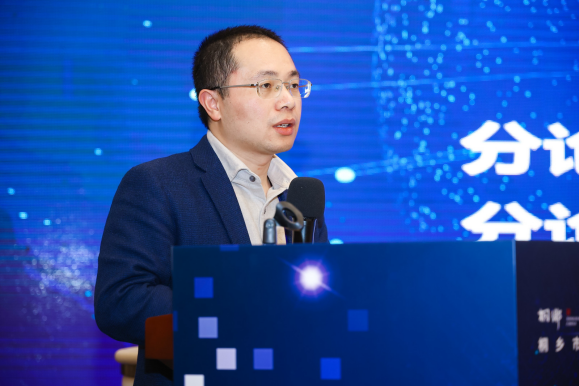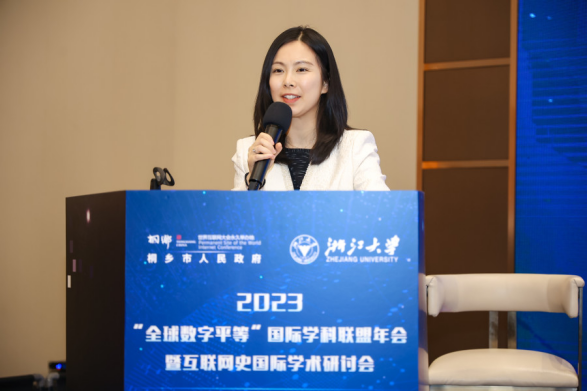On November 7, 2023, the first annual meeting of the International Disciplinary Alliance for Global Digital Equality was held in Wuzhen. The International Digital Equality Alliance (IDEA), led by Zhejiang University, was established in 2022. The alliance takes digital equality as its core essence, aiming to promote dialogue and cooperation among academic institutions and scholars in various disciplines and related research fields, deeply analyze the inequality problems faced in the development of the global digital economy and society, and promote fairness, justice, and sustainable development of the global digital society.
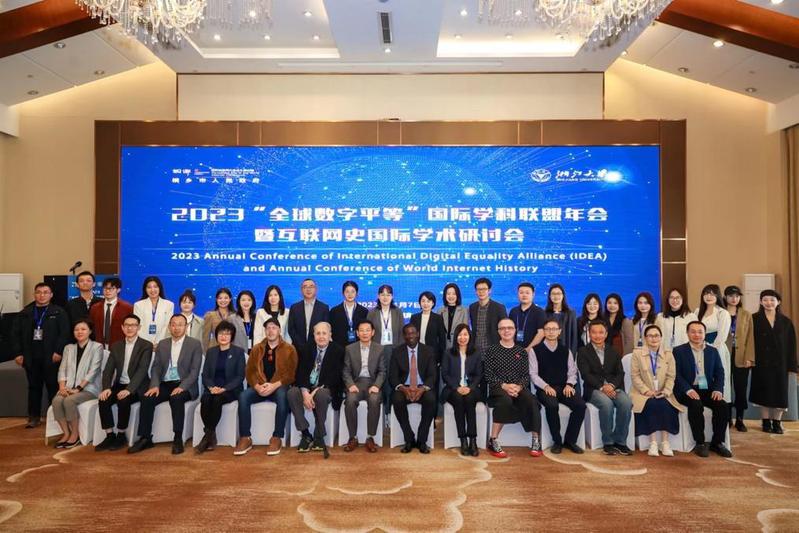
This annual conference focuses on transitioning from the digital divide to digital opportunities, inviting renowned scholars and experts in the field of communication at home and abroad to explore new experiences, problems, and expectations of digital transformation and development in various countries and regions around the world, and jointly explore new paths to establish a digital inclusive society and empower people's well-being with digital technology.
Huang Chengqing, Vice Chairman of the China Internet Association, Professor Wei Lu, Dean of the College of CMIC at Zhejiang University, and G Professor Thomas Goodnight, Professor May O. Lwin from Nanyang Technological University in Singapore, Professor Jeroen de Kloet from the University of Amsterdam in the Netherlands, Professor Haiqing Yu from the Royal Melbourne Institute of Technology in Australia, Professor Levi Obonyo from Daystar University in Kenya, Dr. Fabio Senne (online), Project Coordinator of the UNESCO Regional Center for Information Society Development Research, and Professor Deng Jianguo from the School of Journalism at Fudan University, Professor Li Weidong from the School of Journalism and Information Communication at Huazhong University of Science and Technology, Professor Lu Jia from the School of Journalism and Communication at Tsinghua University, and Professor Zeng Runxi from the School of Journalism at Chongqing University, attended the opening ceremony.
The opening ceremony was presided over by Professor Hong Yu, Vice President of the College of CMIC of Zhejiang University. Huang Chengqing, Vice president of the Internet Society of China, Huang Qing, Deputy Director of the Office of International Cooperation and Exchange of Zhejiang University, and Professor Wei Lu, Dean of the College of CMIC of Zhejiang University, delivered opening speeches respectively.
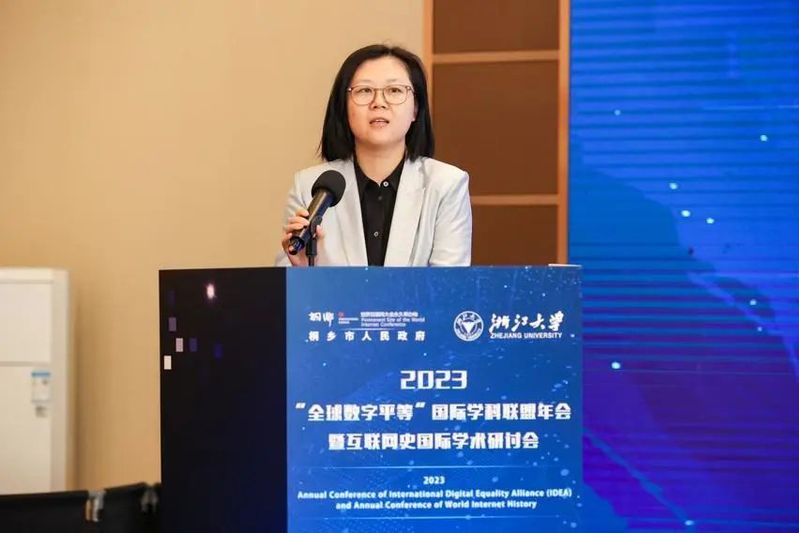
In his speech, Vice President Huang Chengqing pointed out that 2024 marks the 55th anniversary of the birth of the Internet and the 30th anniversary of China's full access to the Internet. The openness, borderless nature and spirit of participation and sharing of the Internet are not only important cornerstones for the vigorous development of the digital society, but also bring new challenges to social governance. The development of artificial intelligence will be a new milestone, and we need to review the past and plan for the future at this important historical node, so that the Internet and future technologies can better benefit all people.
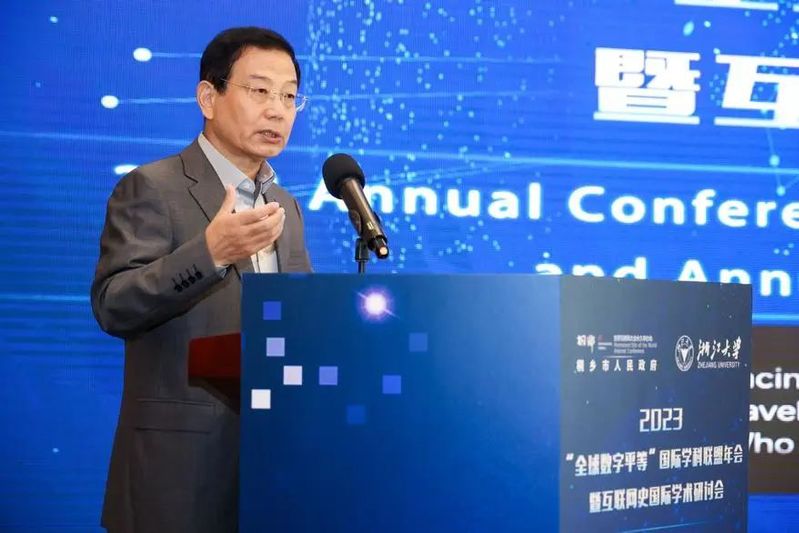
Deputy Director Huang Qing said that bridging the digital divide will help open new possibilities for the world to make digital technologies contribute to a more inclusive well-being of the people, so it is necessary to work together to explore innovative strategies, share best practices, and establish partnerships. Dean Wei Lu introduced the original intention, mission and vision of the College of CMIC of Zhejiang University to launch the Global Digital Equality Initiative.
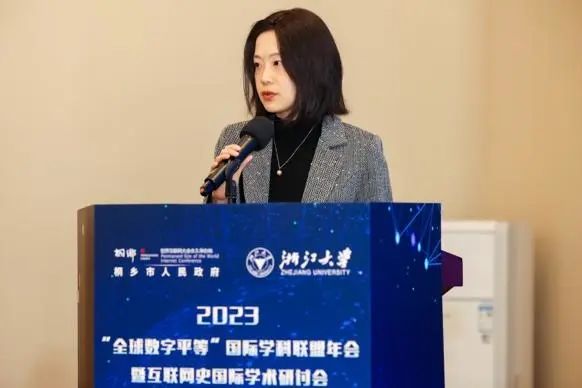
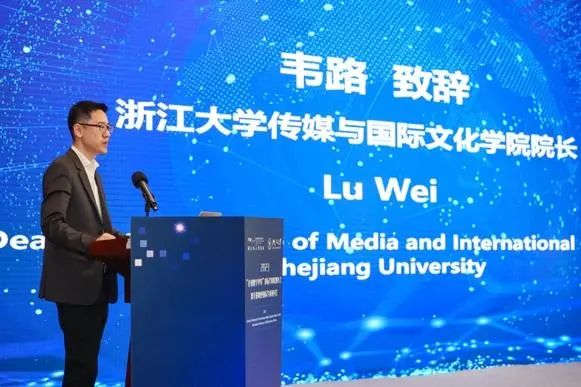
At the opening ceremony, Professor Zhao Yu, Vice Dean of the College of CMIC of Zhejiang University, released the 2023 Digital Divide Annual Report on behalf of the Wuzhen Institute of Digital Civilization. The report summarizes ten key findings of the year:
(1) In 2023, generative AI represented by ChatGPT will enter the stage of explosive growth, the world will accelerate into the era of intelligence, and the problem of digital divide will be intensified unprecedentedly.
(2) Intelligence divide has become a new feature of the digital divide, overlapping with access gap and literacy gap.
(3) In 2022, 5.3 billion people worldwide use the Internet, which means that there is still a third of the world's population does not use the Internet.
(4) In high-income countries, Internet penetration is 93%; Internet access in the least developed countries is only 36 per cent; Internet penetration in the Asia-Pacific region is below the global average; Internet penetration in Africa is only 40%.
(5) The number of Internet users in China exceeds 1 billion, and the Internet penetration rate is 76.4%.
(6) The number of non-Internet users in China is 333 million, mainly in rural areas, which has decreased by 11 million since December 2022.
(7) Ai is becoming a critical infrastructure in the digital economy and will also exacerbate the general digitalization gap in developing countries.
(8) The technology dilemma driven by capital logic is a fundamental challenge to the intelligence divide, and how to further strengthen digital governance and artificial intelligence governance capabilities will become the key to solving the problem of digital divide.
(9) The creation of stronger global public goods by the international community through more active institutional innovation is the key to solving the Simpson paradox and the root causes of the intelligence gap, and will also be an effective way to resist the fragility of the system.
(10) Providing global public goods from four perspectives: technology, economy, education, and society as a whole will help bridge the intelligence gap.
The report highlights the need for multi-stakeholder responsibility and cooperation on this issue, and points out that China's solution to the digital divide should not only look at itself, but also look at the world, and address the digital divide as a strategic direction for deeper participation in global digital governance.
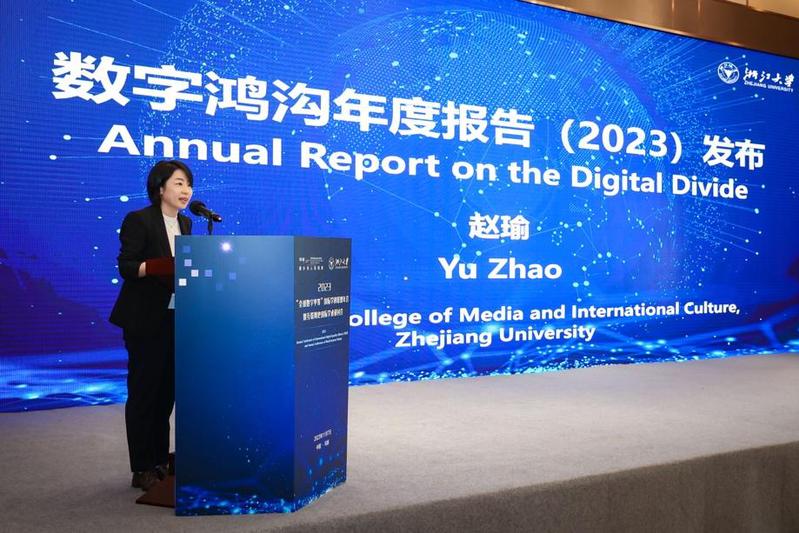
The keynote speech session was presided over by Li Siyue, assistant dean of the Institute of Social Sciences, Zhejiang University. Experts and scholars from six continents have deeply analyzed the global picture and local issues of digital inequality from the perspectives of geopoliics, platform culture, population health, gender, third world, and wealth gap.
Professor Jeroen de Kloet of the University of Amsterdam, the Netherlands, shared his thoughts on media platforms from three aspects: geopolitical anxiety, repetitive creativity, and future imagination. He pointed out that the current multi-polarization of platforms has gone beyond the scope of political economy and technology, and we need a perspective closer to daily life practice to rethink the meaning of platforms for today's society.
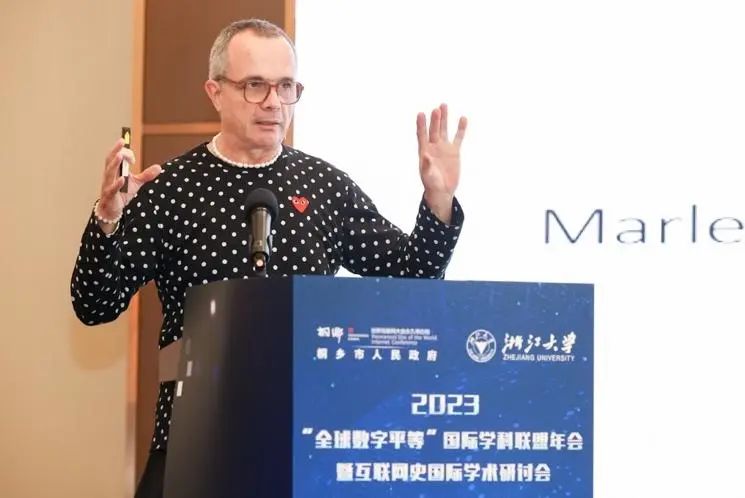
Professor May O. Lwin from Nanyang Technological University in Singapore discussed the application and value of digital technology in health identification and disease control in Asian countries, and explained how the digital health approach based on mobile technology can bring more comprehensive and effective disease surveillance to local communities, so as to improve the unequal population health environment.
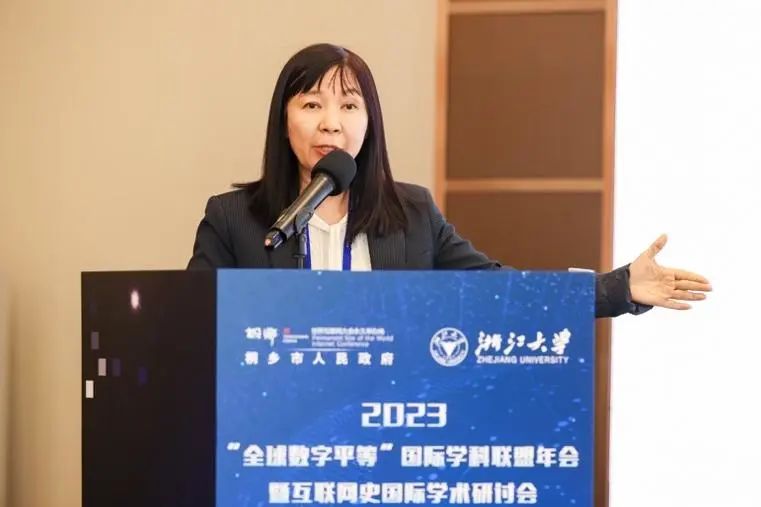
Dr Fabio Senne, Project Coordinator of the UNESCO Regional Centre for Research on the Development of the Information Society, and Professor Levi Obonyo, Professor of Daystar University of Kenya, introduced the development of the Internet and digitalization in Brazil and Kenya, respectively. Entitled Inclusion of Inequality: Assessing the Origins and Impact of Digital Inequality, Dr. Fabio Senne presented their efforts to measure digital inequality and its impact in Brazil, in particular the important role of Internet use in promoting employment, reducing poverty, and enhancing social resilience and resilience.
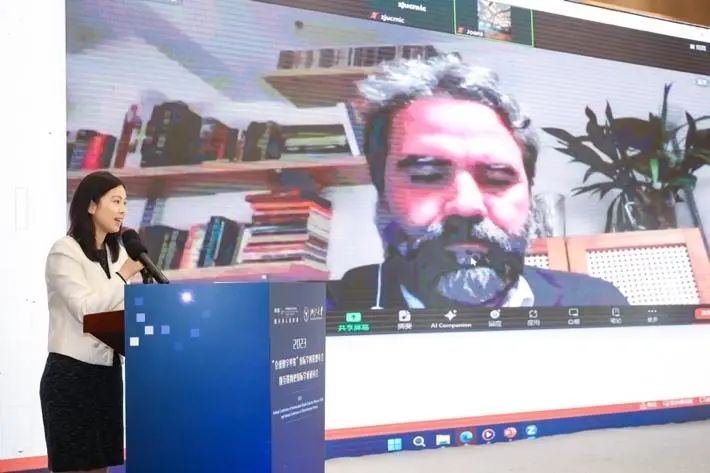
Starting from the challenges and opportunities of the Third World, Professor Levi Obonyo stressed that the digital challenges facing Africa are closely related to the overall poverty and lack of capacity to deliver good public services, so regional dialogue and cooperation and policy development on digital poverty reduction and bridging the gap are particularly important.
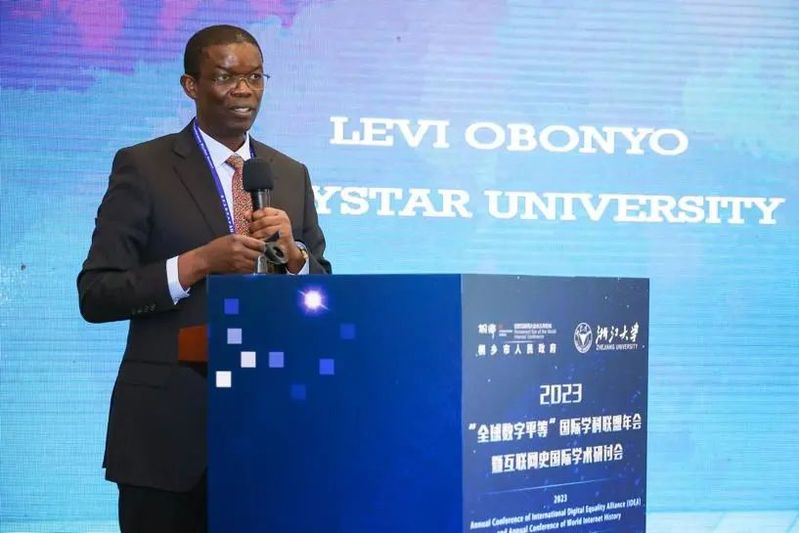
Professor Haiqing Yu of RMIT University in Australia stressed the importance of understanding human-computer interaction from gender, such as how feminine AI products have changed family labor and social labor relations, with the title of Digital Inequality in the Age of Artificial Intelligence. She pointed out that there is often a lack of female perspectives in the development and design of AI projects, and we need to think about how to use AI technologies to achieve greater gender equality, develop and implement gender-inclusive policies and related education, technology design and public service policies.
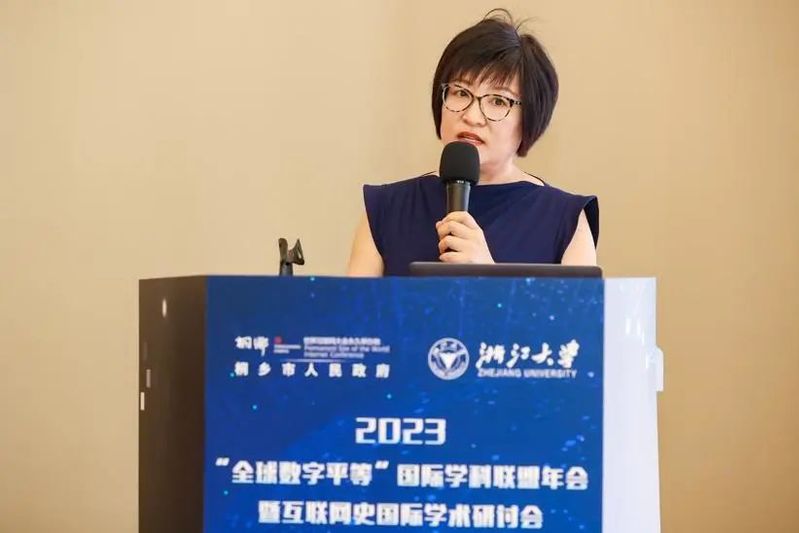
Professor G. Thomas Goodnight of the University of Southern California presented a speech titled Communication Imperatives and Inequalities: The Digital Divide in the United States. He reminds us that we do not live in a world of machines, we live in a world of creatures. If we only talk about technology and ignore the broader communication gap that humanity faces, such as food, electricity, and shelter, it is easy to overlook the vulnerability and complexity of human circumstances. That is, how people can transmit and communicate.

Subsequently, the working meeting of the advisory group of the IDEA Discipline Alliance was held. At the meeting, Professor Wei Lu, Dean of the College of CMIC of Zhejiang University, presented the letter of appointment to the members of the advisory panel. The advisory group had a full exchange of views on the future inter-university cooperation, inter-disciplinary cooperation and the way of holding the annual meeting of the disciplinary alliance, and jointly signed the Global Digital Equality Initiative. The initiative aims to promote the sharing of academic resources, establish a global academic dialogue and exchange mechanism, gather cutting-edge research forces, jointly cultivate global young academic talents, and serve the public to improve digital literacy education. Professor Hong Yu, Vice Dean of the College of CMIC of Zhejiang University, and Researcher Li Siyue, Assistant dean of the Institute of Social Sciences of Zhejiang University attended the meeting.
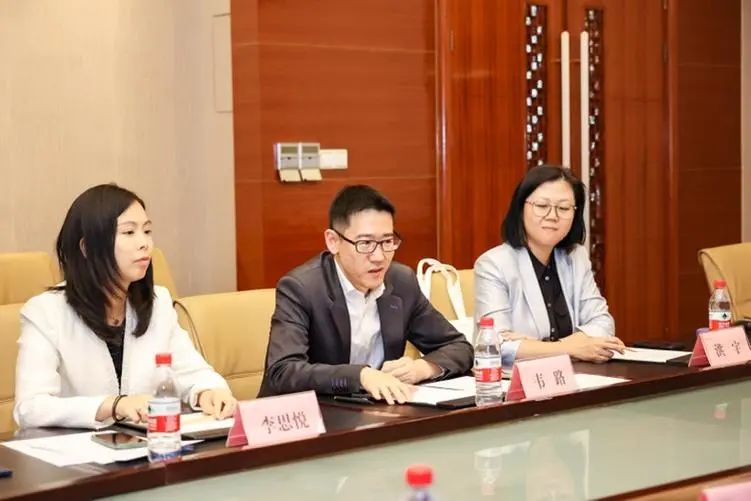
In addition, the annual meeting was widely solicited from all walks of life, and was reviewed by the expert committee to form four sub-forums.
The first sub-forum was themed Artificial Intelligence Technology and digital equality. Zhou Ruiming, a researcher at the School of Media and International Culture of Zhejiang University, was the moderator, and Deng Jianguo, a professor at the School of Journalism of Fudan University, was the moderator. Yuming Ding of the University of Electronic Science and Technology of China focused on the perceived impact of Internet use on social mobility. Qiong Zhou and Xinyu Ye of Zhejiang University of Technology explored youth's digital literacy in terms of content production and consumption on Kuaishou. Li Zhiyi of Hangzhou Normal University shared the action strategy of grassroots anchors under the black box of short video platform algorithm. Zhao Jing from the School of Communication at National Chengchi University in Taiwan shared a topic about the new opportunities ChatGPT brings to we-media entrepreneurs. Professor Deng Jianguo stressed that researchers should pay attention to the standardization and innovation of research methods, and affirmed the significance of the guests' research on the topic of artificial intelligence technology and digital equality.
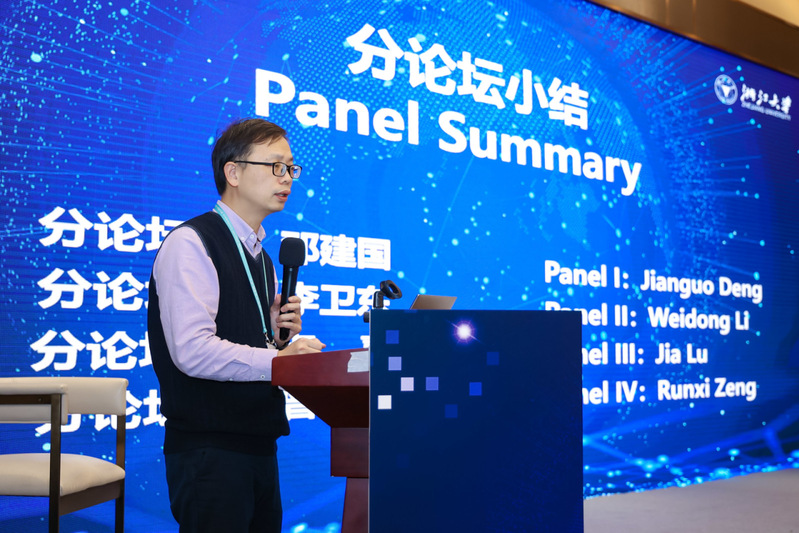
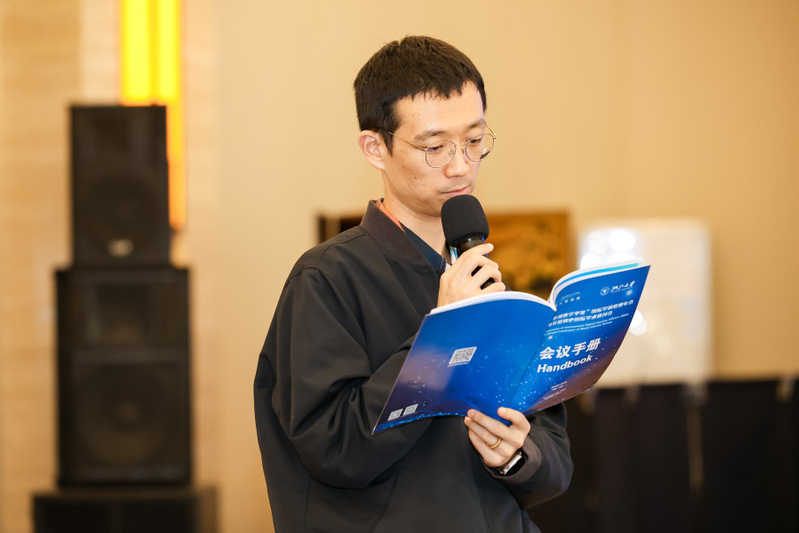
The theme of the second sub-forum is Intelligent Governance and the Construction of Digital China, with Ding Fangzhou, a researcher at the School of Media and International Culture of Zhejiang University as the moderator and Li Weidong, a professor at the School of Journalism and Information Communication of Huazhong University of Science and Technology as the moderator. Zheng Suxia, vice dean of the School of Journalism and Communication of Zhengzhou University, conducted a policy analysis and path optimization research on the governance of digital inequality in China. Zhang Wenyan of Chongqing University focused on the problem of algorithmic governance in the era of intelligence, and proposed the research framework and future issues of algorithmic governance. Jie Shen of the University of Amsterdam explored smart cities and social equity in China. Wang Minzhi, a teacher from the School of Journalism and Communication of Shaanxi Normal University, shared her research on the path of national digital capability and digital divide bridging. Xiang Qingping of Xiangtan University and Shou Xiaoming of Gannan Normal University shared the topic of As a Service Intermediary: Village Cadres' Use of mixed Media and Rural Governance Reform and Algorithmic Process Regulation Governance Path of Data Transaction from the perspective of algorithmic Trust respectively. Professor Li Weidong affirmed the significance of the speakers' research topics, pointed out the highlights of their research on the core issues of digital governance, and put forward constructive opinions.
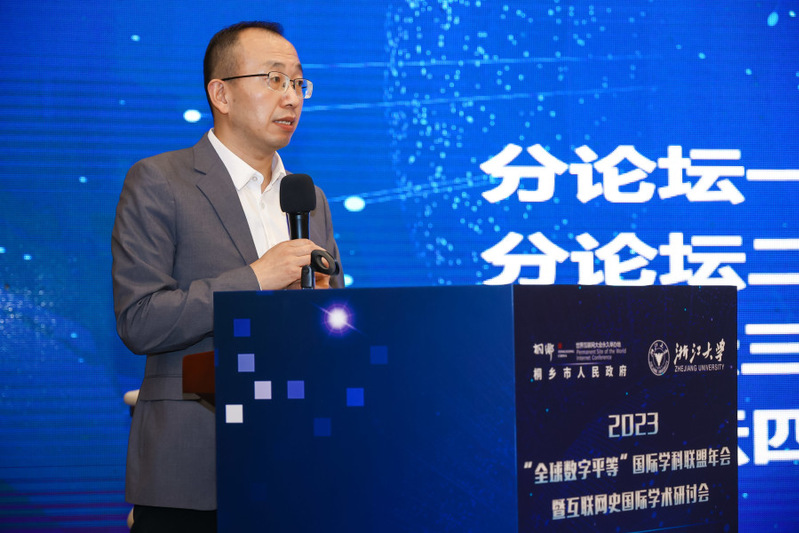
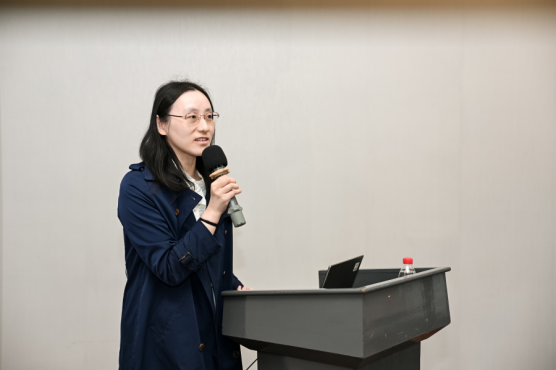
The third sub-forum focused on Urban-Rural and Gender Equality in the Era of intelligent media. Cheng Xiaoxiao, a researcher at the School of Media and International Culture of Zhejiang University, was the moderator, and Lu Jia, a professor at the School of Journalism and Communication of Tsinghua University, was the reviewer. Liu Xin from Zhengzhou University shared the impact of short videos as rural infrastructure on rural life order and potential problems. Zhang Li, Dong Shiyu and Wu Qikai of Xi 'an Jiaotong University focused on the mechanism of digital public media enabling villagers to participate in governance. Ren Yunling, from the School of Journalism and Information Communication at Huazhong University of Science and Technology, shared the distinction between motherhood and intelligent parenting in human-computer cooperative parenting. Yunsha Pu of the School of College of CMIC of Zhejiang University explored the stress, risk behavior and online fraud of immigrants through an empirical study of Chinese migrant workers. Chen Wanwan from Wenzhou Business School shared his thoughts on gender stereotypes in social media advertising in the era of intelligent media. He Miao, from the College of CMIC at Zhejiang University, shared a study on the influencing factors of online shopping fraud among Chinese seniors. Professor Lu Jia stressed that the focus of research should be to find real topics of value and avoid common sense.
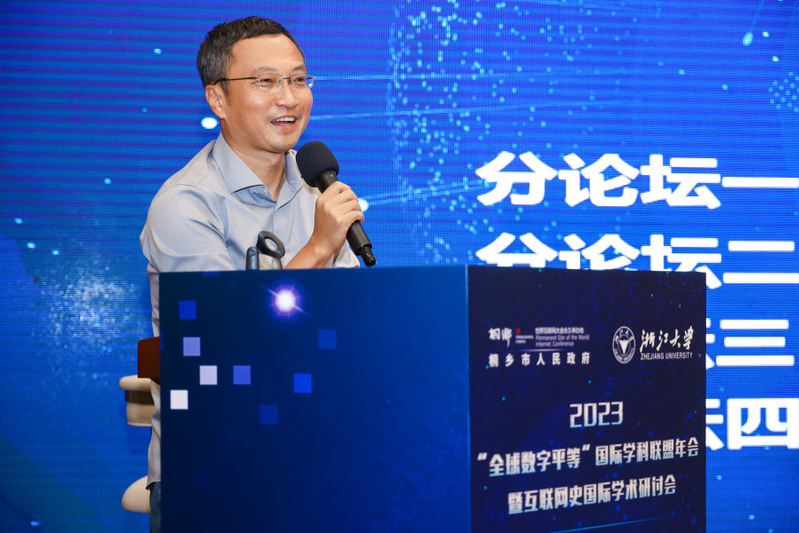
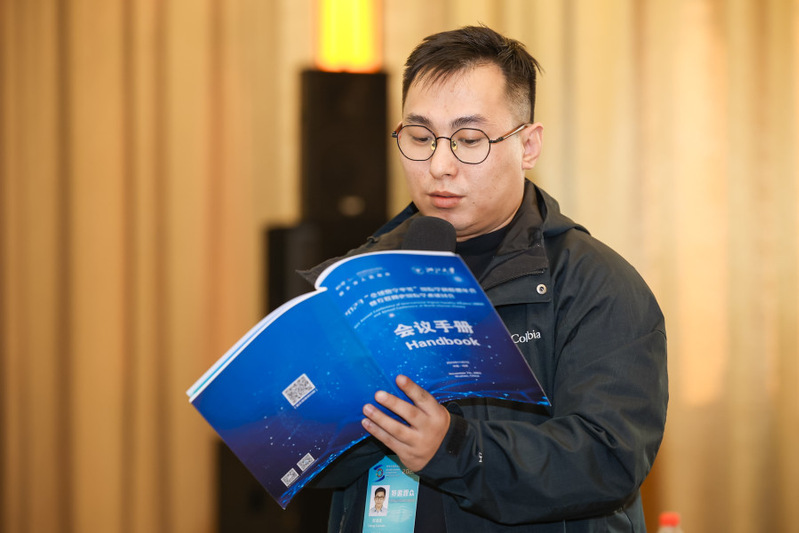
The fourth sub-forum focused on Health equality in the era of intelligent media, with Li Siyue, a researcher at the College of CMIC of Zhejiang University, as the moderator, and Zeng Runxi, a professor at the School of Journalism of Chongqing University, as the moderator. Liang Haochen, Lv Yilin, Xu Rui and Wen Xin from the School of Journalism at Renmin University of China share their research on university students' publicly expressed wishes during public health emergencies. He Xue of Sichuan Normal University focused on the factors that influence bridging the gap between the rural elderly and the era of intellectual media. Meng Fanchun and Xu Yidan of Shanghai Jiao Tong University focused on the information gap of HPV knowledge and the healthy feeding of offspring among school-age women in small and medium-sized cities. Lian Jingwen, Wu Dawei, Zhao Yuxiang and Zhu Qinghua of the School of Information Management, Nanjing University, based on the method of digital narrative grammar analysis, studied the influential factors of the elderly's use of social media in the era of intelligent media. Yang Qin of Wuhan Physical Education University focuses on the problem of online self-disclosure of new and elderly people from the perspective of privacy computing. Professor Tsang Yunhei affirmed the innovation of the participants in the research methods, samples and models on the issue of health equality, and placed expectations on their future research.
